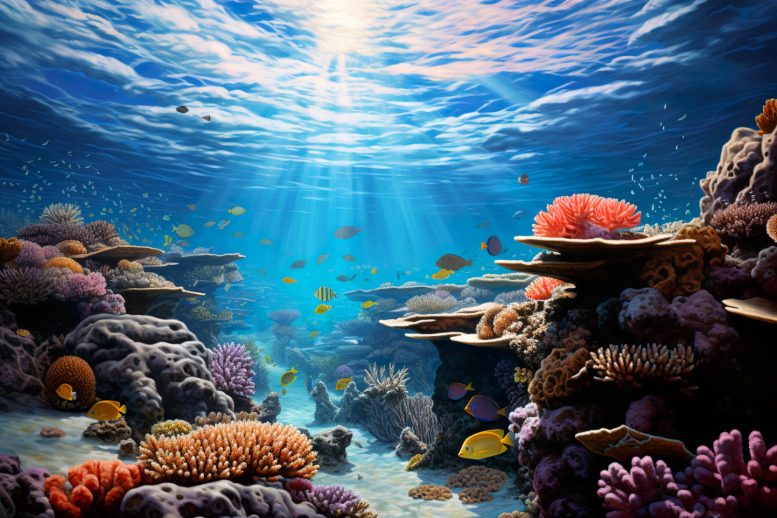
Scientists have recently discovered a Chlamydia-like bacteria in corals of the Great Barrier Reef. This discovery, published in the journal Science Advances, could provide crucial insights into the microbiome of corals and its possible implications on the health of coral reefs.
The study was conducted by the University of Melbourne, in conjunction with the Australian Institute of Marine Science (Townsville) and the University of Vienna. The research identified two types of bacterial groups within the coral tissue, one of which closely resembles the bacteria causing Chlamydia (Chlamydiales), and the other being Endozoicomonas.
The study, funded by an ARC Laureate Fellowship, adds another layer of complexity to the understanding of coral reef health. Lead researcher from the Faculty of Science at the University of Melbourne, Dr. Justin Maire, said Chlamydiales – a bacterial order that contains the pathogens responsible for chlamydia infections in mammals – has never been described before in corals.
“We worked with Chlamydiales specialists Dr. Astrid Collingro and Professor Matthias Horn from the University of Vienna, and found that these bacteria steal nutrients and energy from their hosts to survive,” Dr. Maire said. “The novel Chlamydiales exhibit many similarities with mammalian pathogens, but we are unsure if they are detrimental or beneficial to corals. There is a possibility that this bacterium gets nutrients and energy from other coral-associated bacteria, and for those of us working to understand coral biology, the possibility that the bacteria living inside coral tissues are interacting with each other is quite thrilling.”
Senior author of the study, University of Melbourne Professor Madeleine van Oppen, said the other bacterium discovery, Endozoicomonas is known to be widespread in corals and is generally considered beneficial due to its ability to produce B vitamins and antimicrobial compounds.
“One of the focus areas in my lab is the development of bacterial probiotics for corals, helping to improve their resistance to thermal stress and survival rates caused by climate warming,” Professor van Oppen said. “We still know very little about the functions of coral-associated bacteria, and this new study will help us to figure out whether probiotics are a feasible solution and if bacteria such as Endozoicomonas are best placed to do the job.”
Reference: “Colocalization and potential interactions of Endozoicomonas and chlamydiae in microbial aggregates of the coral Pocillopora acuta” by Justin Maire, Kshitij Tandon, Astrid Collingro, Allison van de Meene, Katarina Damjanovic, Cecilie Ravn Gotze, Sophie Stephenson, Gayle K. Philip, Matthias Horn, Neal E. Cantin, Linda L. Blackall and Madeleine J. H. van Oppen, 17 May 2023, Science Advances.
DOI: 10.1126/sciadv.adg0773